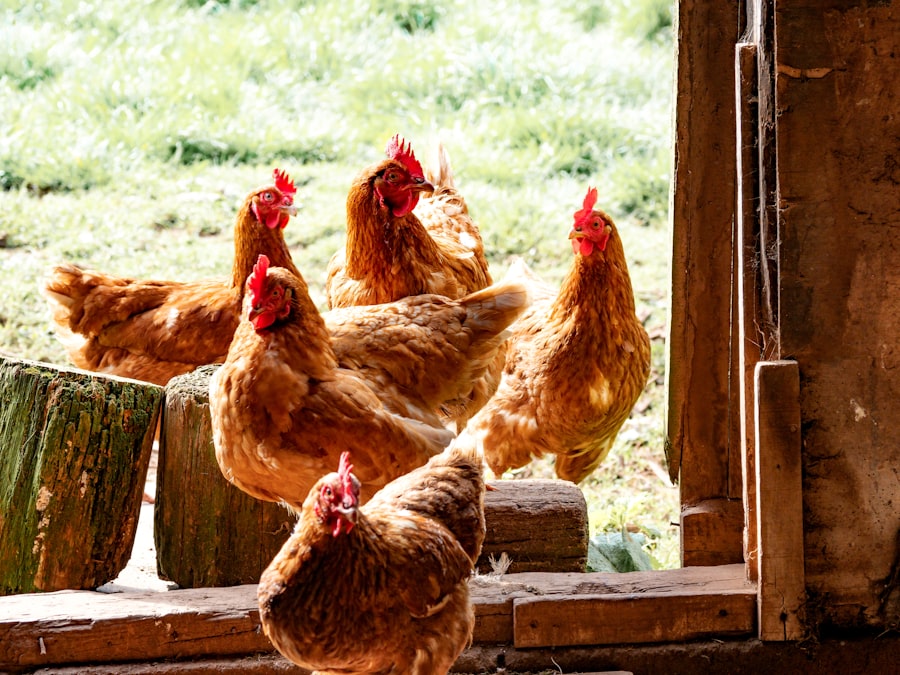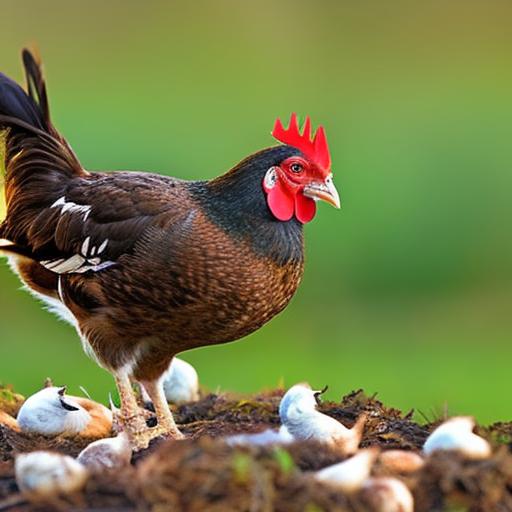Raising chickens has become a popular hobby for many people, whether they live in rural areas or in urban settings. Not only do chickens provide fresh eggs, but they also offer a fun and rewarding experience. However, it’s important to consider the costs associated with raising chickens before diving into this venture. In this article, we will explore the various expenses involved in raising chickens and maintaining a chicken coop.
Key Takeaways
- Raising chickens can be a cost-effective way to have fresh eggs and meat at home.
- Initial costs of raising chickens include purchasing chicks, feeders, and waterers.
- Building a chicken coop can be expensive, but buying a pre-made coop can save time and money.
- Chicken feed and watering systems are ongoing expenses that should be factored into the cost of keeping chickens.
- Keeping chickens healthy requires regular veterinary care and additional expenses for supplements and treats.
Initial Costs of Raising Chickens
The first cost to consider when raising chickens is the purchase of the birds themselves. You have the option of buying chicks or adult birds, each with its own price tag. Chicks are generally cheaper, but they require more care and attention in their early stages of life. Adult birds, on the other hand, are more expensive but are already mature and ready to start laying eggs.
In addition to the cost of the birds, you will also need to invest in necessary supplies such as a feeder and waterer. These items ensure that your chickens have access to food and water at all times. While these initial costs may seem daunting, they are a one-time investment that will provide long-term benefits.
Housing: The Cost of Building a Chicken Coop
A chicken coop is an essential component of raising chickens. It provides shelter and protection from predators, as well as a comfortable environment for your flock. Building a chicken coop can be a significant expense, depending on the size and materials used.
The cost of building a chicken coop can vary greatly depending on your location and the materials you choose. Basic coops can be constructed using plywood and lumber, while more elaborate designs may require additional materials such as wire mesh or metal roofing. It’s important to consider factors such as ventilation, insulation, and ease of cleaning when designing your coop.
Buying a Pre-Made Chicken Coop
If building a chicken coop from scratch seems overwhelming or time-consuming, you also have the option of purchasing a pre-made coop. These coops come in a variety of sizes and designs, and they often include features such as nesting boxes and roosting bars.
The cost of a pre-made chicken coop can range from a few hundred dollars to several thousand, depending on the size and quality of the coop. While this may seem like a significant expense upfront, it can save you time and effort in the long run. However, it’s important to carefully consider your needs and budget before making a decision.
Chicken Feed: The Cost of Keeping Your Flock Well-Fed
Feeding your chickens a balanced diet is crucial for their health and productivity. The cost of chicken feed can vary depending on the type and quality of feed you choose. There are several options available, including commercial feeds, organic feeds, and homemade feeds.
Commercial feeds are readily available and formulated to meet the nutritional needs of chickens. They come in different forms such as pellets, crumbles, or mash. Organic feeds are made from ingredients that have been grown without the use of synthetic pesticides or fertilizers. Homemade feeds can be more cost-effective but require careful planning to ensure that your chickens receive all the necessary nutrients.
Watering Systems: Keeping Your Chickens Hydrated

Providing your chickens with clean and fresh water is essential for their health and well-being. There are various watering systems available, each with its own cost.
The most basic watering system is a simple waterer that can be refilled manually. These are inexpensive but require regular monitoring and refilling. Automatic watering systems, such as nipple or cup waterers, are more convenient but come at a higher cost. These systems provide a constant supply of water to your flock and reduce the risk of contamination.
Bedding: The Cost of Keeping Your Coop Clean
Keeping your chicken coop clean is crucial for maintaining the health of your flock. Bedding helps absorb moisture and odor, making it easier to clean the coop and preventing the buildup of bacteria.
There are several types of bedding available, including straw, wood shavings, and shredded paper. The cost of bedding can vary depending on your location and the availability of different materials. It’s important to choose a bedding material that is safe for your chickens and easy to clean.
Health and Wellness: The Cost of Keeping Your Chickens Healthy
Keeping your chickens healthy is essential for their overall well-being and productivity. This includes regular vaccinations, deworming, and preventative measures against common diseases.
The cost of vaccinations and other preventative measures can vary depending on your location and the specific needs of your flock. It’s important to consult with a veterinarian or poultry specialist to determine the best course of action for your chickens. While these costs may seem high, they are an investment in the long-term health and productivity of your flock.
Miscellaneous Costs: Supplements, Treats, and Other Expenses
In addition to the basic costs mentioned above, there are also miscellaneous expenses to consider when raising chickens. This includes supplements such as calcium or grit, treats for your flock, and other expenses such as heating costs in the winter.
Supplements are important for providing additional nutrients that may be lacking in their regular diet. Treats can be used as a form of enrichment and can help build a bond between you and your chickens. Other expenses may include heating costs in the winter to keep your chickens warm and comfortable.
The Total Cost of Keeping Chickens and a Chicken Coop
Raising chickens can be a rewarding experience, but it’s important to consider the costs involved. From purchasing the birds to building or buying a coop, feeding and watering systems, bedding, health care, and miscellaneous expenses, there are several factors to consider when budgeting for raising chickens.
While the initial costs may seem high, it’s important to remember the long-term benefits of raising chickens. Fresh eggs, a fun and educational hobby, and the satisfaction of providing for your own food are just a few of the rewards that come with raising chickens. With careful planning and budgeting, the costs can be manageable, and the benefits can far outweigh the expenses.
If you’re considering keeping chickens, you might be wondering how much it will cost to provide them with a suitable living space. Poultry Wizard has a helpful article that explores the expenses involved in keeping chickens and provides valuable insights into the different options available. From building a chicken coop in Muskegon (link: https://poultrywizard.com/keeping-chickens/chicken-coop-muskegon/) to transforming a shed into a chicken coop (link: https://poultrywizard.com/keeping-chickens/turning-a-shed-into-a-chicken-coop/), they cover various ideas and tips for creating an ideal environment for your feathered friends. Additionally, they offer inspiration for designing the interior of your chicken coop (link: https://poultrywizard.com/keeping-chickens/chicken-coop-interior-ideas/) to ensure both functionality and comfort.
FAQs
What is the average cost of keeping chickens?
The average cost of keeping chickens varies depending on factors such as the number of chickens, the type of feed, and the cost of housing. However, it can range from $300 to $700 per year.
What are the initial costs of keeping chickens?
The initial costs of keeping chickens include purchasing a coop, feeders, waterers, and chickens. The cost of a coop can range from $200 to $500, while the cost of feeders and waterers can range from $20 to $50 each. The cost of chickens varies depending on the breed and age, but it can range from $3 to $30 per bird.
What are the ongoing costs of keeping chickens?
The ongoing costs of keeping chickens include feed, bedding, and healthcare. The cost of feed varies depending on the type and quality, but it can range from $15 to $30 per month per bird. Bedding can cost around $5 to $10 per month per bird. Healthcare costs can vary depending on the need for vaccinations, deworming, and other treatments.
What are the benefits of keeping chickens?
Keeping chickens can provide a source of fresh eggs, fertilizer for gardens, and entertainment. Chickens can also help control pests in the yard and provide a sense of self-sufficiency.
What are the risks of keeping chickens?
Keeping chickens can pose risks such as the spread of diseases, attracting predators, and noise complaints from neighbors. It is important to properly care for chickens and maintain a clean and safe environment to minimize these risks.
Meet Walter, the feathered-friend fanatic of Florida! Nestled in the sunshine state, Walter struts through life with his feathered companions, clucking his way to happiness. With a coop that’s fancier than a five-star hotel, he’s the Don Juan of the chicken world. When he’s not teaching his hens to do the cha-cha, you’ll find him in a heated debate with his prized rooster, Sir Clucks-a-Lot. Walter’s poultry passion is no yolk; he’s the sunny-side-up guy you never knew you needed in your flock of friends!







